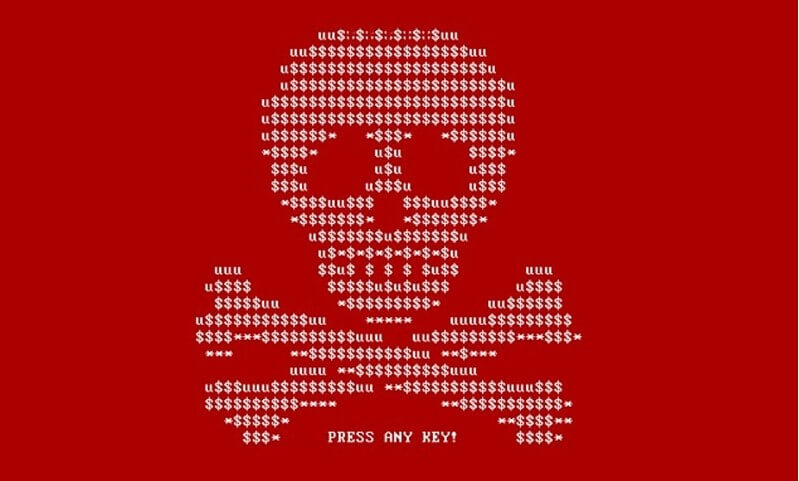Browsing the web may seem like a fun thing to do. And it is! You can do hundreds of tasks on the Internet: play games online against a computer or other players around the world; stream music, videos, TV series, shows, documentaries, and even live sports events with ease. You can read the world’s latest news, check the results of that game you missed, enter and enjoy dozens of social media outlets, make online transactions in your bank account, and much more. The possibilities for work and leisure are endless.
However, everything is not fun and games. Online security and privacy have taken another level when it comes to relevance, and it is no coincidence given the frequency of cyber-attacks that affect users on a daily basis.
Users seek new resources and tools to defend themselves from hackers trying to steal their data and traffic and from viruses, Trojans, worms, malware and any external agent that threatens to infect or erase necessary files of your device.
One of the most recent forms of cyber-attacks is Ransomware. This Trojan can act like it “kidnaps” you in a digital way. It usually gets into your system via an email attachment that you inadvertently (or innocently) download or open, and bad things happen when you do this: it encrypts your data and blocks you from accessing critical stuff on your device unless you pay a ransom.
This system is functioning since 2012, and cyber thieves collected millions of dollars using it to scam and terrorize users. Some of the notorious examples of recent times are the WannaCry worm, CryptoLocker, and Cryptowall, but there are hundreds of files that can kidnap your records and information out there.
What can you do about a cryptovirology attack? It is essential to have weekly, or monthly data backups, so you lose the least amount of files possible in the event of an attack. Other measures are recommended, like being wary or careful with web popups or suspicious email attachments from unknown sources.
However, one of the best things you can do is obtaining the aid of a VPN provider. VPNs can’t protect you from ransomware with 100% efficacy, but they make sure to enhance your online privacy, and since you will be browsing the web anonymously, they most likely won’t target you as their next victim.
Ransomware and the kidnapping of your files
Ransomware is a relatively new form of web criminal activity that can affect particular individuals and also companies, governmental institutions, and non-profit organizations. Anybody can be a victim of Ransomware if it does not have enough protection against it. The consequences of an infection could be catastrophic, and some people have a lot to lose if they don’t pay the asked money to regain access to their stuff.
Ransomware, therefore, can be described as software that is programmed to block programs and access to critical files of the users it affects until it pays a “ransom,” acting like online hijackers looking to retribution to unblock your files.
In addition to blocking you from accessing your data and files, Ransomware can also delete relevant information from your device if you don’t “cooperate” with them and pay the ransom they require from you. People had lost millions of dollars in ransoms since 2012 when the system got popular among web users, but the concept existed since 1996 and was then referred to as “cryptoviral extortion.”
Ransomware such as WannaCry, CryptoLocker, and Cryptowall can get access to your files if you recklessly download or open suspect email attachments or via web popups. When they get to your system, they encrypt your data and software and until you pay the ransom, usually in cryptocurrencies like Bitcoin that protect the privacy and information of the “kidnappers,” and then they decrypt your digital assets. Experts identify Ransomware as one of the fastest growing threats on the Internet in the last few years.
How to protect yourself from Ransomware
Ransomware like WannaCry (which, believe us, will make you want to cry if you get it on your device) can be very dangerous. Nobody likes to see their data kidnapped with the obligation of paying vast sums of money to liberate it. These extortion techniques can compromise some crucial files, especially if the affected individuals or companies have obsolete Operating Systems or are not protected by anti-virus software.
Once Ransomware reaches your system, there is very little to do except going to the respective authorities and disconnecting the device from the Internet with the intention of avoiding other machines and equipment to be infected. But to prevent future attacks, you can:
- Be especially aware of suspicious emails and popups: The first and most important security measure you can take to prevent malware such as ransomware entering your system is being very careful with what you open. Don’t even consider opening or downloading email attachments from unknown sources, and avoid web popups at all costs. This is the way that ransomware enters your system.
- Keep your operating system update: some of the older versions are the most vulnerable to Ransomware attacks, especially Windows equipment. However, Mac, Linux and other Operating Systems are also susceptible.
- Data backups: With the intention to keep your data as safe as possible, try to do weekly or monthly backups so in the event of a malware infection, you have a backup available and the impact of the damage will be significantly less.
- Port blocking: Block access from TCP Port 445 by configuring a Firewall.
- Anti-virus software: Purchase a quality virus scanning and eliminating software before it is too late. Options like Malwarebytes Anti-Ransomware and Cybereason Ransom free are widely available, and they can be useful.
- VPN: One of the most effective methods that exist today for malware prevention is Virtual Private Networks. VPN can protect you from Ransomware by providing you a borrowed IP address to browse the web. It will give you anonymity and privacy, which is very enticing because the encrypted nature of the data you share with a VPN will make ransomware developers very difficult to reach you. Besides, a quality VPN like TorGuard can protect you from Ransomware by having a list of suspicious addresses.
The benefits of increased privacy and anonymity
VPNs are online data encrypting tools that work by tunneling your data to remote servers so no one can track your traffic and use that information against you. Ransomware developers usually target vulnerable users to engage them in downloading the infected file on their computers, and a person using a VPN will be nearly untraceable because its IP address will not be public.
By tunneling, we mean that the traffic that you generate will travel to remote servers protected by encryption technologies such as Layer 2 Tunneling Protocol (L2TP)/IPSec, which means IP security, and also Secure Sockets Layer (SSL) and Transport Layer Security (TLS).
If you have a private, secure and anonymous connection via a VPN, third parties like hackers, governmental institutions, advertising companies and business firms looking to sell you all kinds of stuff you don’t need will have no access to your material. Even your Internet Service Providers selling your browsing information to the highest bidder won’t be a worry.
While VPN can make you less prone to be the target of a Ransomware infection, you are still not 100% protected. The ideal thing to do is to acquire several security measures, software, and equipment to accumulate barriers for malware creators to encounter.
In conclusion, avoid opening or downloading unknown attachments or popups because this is the way that ransomware enters your computer or device. If you don’t want to see your files kidnapped and pay money to reaccess them, purchase antivirus and malware software and get the services of a VPN that can protect you from Ransomware.
 |
 |
|
|---|---|---|
| Multi-platform Compatible | ||
| 256-AES Encryption | ||
| PRICE | $5 for 1 month with code "best10VPN" | $6.95 a month |
| Website Rating | 9.9 | 8.8 |
| 24/7 Live Chat | ||
| Residential / Dedicated IP for permanent streaming access | ||
| Has Mobile App + PC / Mac Support | ||
| Stealth VPN / Advanced Obfuscation techniques | ||
| Visit VPN Provider | Visit TorGuard | Visit PIA |

